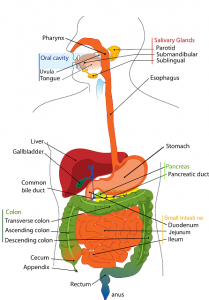Herewith the conclusions from a review of the available research literature about selenium and inflammatory bowel disease [Ala & Kheyri 2021].
- Selenium deficiency is a common finding in Inflammatory Bowel Disease (IBD) patients, and there is a correlation between increasing selenium deficiency and disease severity.
- Selenium contributes to effective function of antioxidant systems
and alleviates colitis.
Inflammatory Bowel Disease comprises two sub-types: ulcerative colitis and Crohn’s disease. IBD is a very complex disease that is difficult to manage. One estimate is that 1 million citizens in the US and 2.5 million residents in Europe suffer from IBD. These patients must contend with the high price of medication, social stigma, and diminished quality of life. IBD patients suffer from malabsorption and commonly have a deficiency of selenium and other micronutrients.Selenium deficiency is a common finding in Inflammatory Bowel Disease (IBD) patients, and there is a correlation between increasing selenium deficiency and disease severity.Selenium supplementation alleviates colitis (inflammation of the large intestine, the colon). - Selenium aids healing of the intestinal mucosa through modification of immune response.
- Selenium may improve the activity of gut protective microbiota, which are decreased in IBD.
- Selenium may reduce the risk of colorectal cancer by modulating several signaling pathways.
How does Adequate Selenium Status Help Inflammatory Bowel Disease patients?
Adequate intakes of selenium are needed for the biosynthesis of selenoproteins, which contribute to antioxidative protection of cells and to the effective functioning of the immune system.
- Selenium through the action of selenoproteins is known to have anti-inflammatory properties.
- Adequate selenium status supports protective gut microbiota, which indirectly improves the management of IBD.
- Selenium may block some of the tumorigenesis pathways under investigation in colitis-associated colorectal cancer.
Intake of Selenium Varies from Region to Region
The dietary intake and individuals’ serum level of selenium varies from region to region. For example, the US population has higher serum level of selenium (ca. 124 – 193 mcg/L) compared to most of the European and Middle Eastern populations (ca. 50-120 mcg/L) simply because the soil in many regions of North America is rich in selenium.



